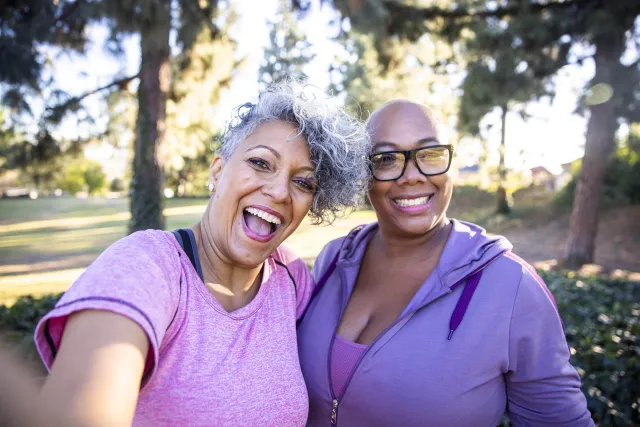3 New Resources Focus on Diversity in Clinical Trials

The Cancer Support Community added 3 new educational resources to the Frankly Speaking About Cancer: Clinical Trials library this spring.
Cancer patients often find it hard to choose treatment options that are right for them. Clinical trials can help find new ways to prevent, detect, and treat cancer. They also can help improve the lives of people during and after treatment. Still, patients and doctors often miss the chance to talk about clinical trials.
CSC held several focus groups across the United States to better understand patient and caregiver views on clinical trials. We spoke with people from groups usually underrepresented in these studies. They included Black and African Americans, native Spanish speakers, and older adults.
Participants shared what they knew about clinical trials, whether they would join a study, and what would help them decide. Among their key messages, informational materials should:
- Be easy to understand to help with the decision-making process
- Include more photos and stories from patients who have been in clinical trials
- Feature photos of patients and health care members from different race and ethnic backgrounds
- Address past unethical practices, such as the Tuskegee Syphilis study
- Discuss who joins clinical trials and why more diversity is important
- Be patient-friendly and culturally relevant
CSC listened to this feedback and responded with 3 new publications.
1. Frankly Speaking About Cancer: The Importance of Diversity in Clinical Trials
This fact sheet addresses the need for information about who participates in clinical trials. It talks about the importance of having people from different backgrounds join because participants in clinical trials often do not represent everyone impacted by cancer. People of color, Hispanics, women, and older adults are often underrepresented. This is a problem because a person’s age, gender, race, or ethnicity may affect how cancer responds to treatment. Increasing the diversity of those in clinical trials can provide better results on how new treatments work with all patients.
The fact sheet includes:
- Information about clinical trials
- Common concerns about taking part in a clinical trial
- Barriers that keep people from participating in a clinical trial
- Statistics about health disparities
- Information on how to get involved in clinical trials
- Tips and resources
It also features quotes and photos from providers, cancer patients, and caregivers of color.

2. Frankly Speaking About Cancer: Are Clinical Trials Right for You?
This worksheet helps patients talk to their health care team about clinical trials and whether they are right for them. It includes a list of questions about clinical trials to review with their health care team. It also encourages patients and caregivers to think about their personal goals for treatment.
The booklet aims to help patients:
- Start discussions about clinical trials with their health care team
- Search for clinical trials
- Assess their values and beliefs around clinical trials
- Understand the benefits of joining a clinical trial
3. Frankly Speaking About Cancer: Clinical Trials Photo Novella
CSC also revised Frankly Speaking About Cancer: Clinical Trials Photo Novella. This piece was first published in 2016. Meant to spark conversations, the book models being an active partner in your health care team. It debunks myths about clinical trials in patients’ own words. Photos help narrate the stories.
Each chapter focuses on a discussion that patients may have with their family or health care team, such as:
- Why take part in a clinical trial
- How clinical trials work
- Who should join a clinical trial
- How to find a clinical trial
- Making the decision to join a clinical trial
- How clinical trials can bring a different approach to treatment
- How clinical trials can be a source of hope when you are out of options
- How clinical trials can make life better overall
The 2021 edition includes more photos of diverse patients and caregivers and contains culturally relevant information to address the needs of patients from different backgrounds.
The photo novella is also available in Spanish.
CSC hopes our latest materials empower patients to become self-advocates when working with their health care team. They can answer questions and provide starting points for conversations about clinical trials.
